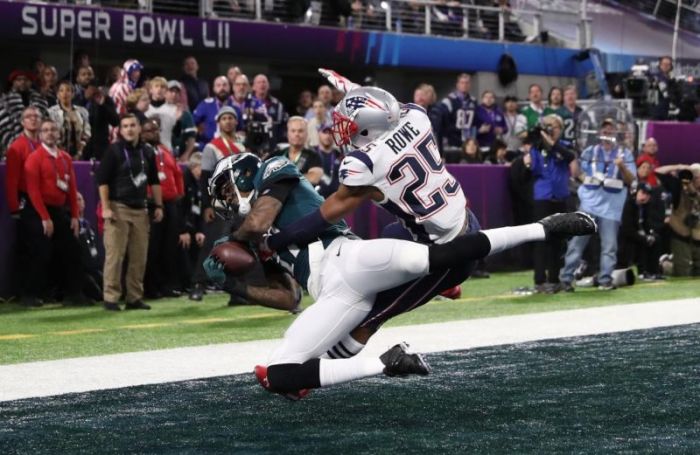Baptist Theologian Likens Football to 'Gladiators Killing Each Other'

While much of America was watching Super Bowl LII and hailing the Philadelphia Eagles' championship win, a Baptist theologian argued that the sport causes brain damage and likened its celebration to people cheering on gladiators fighting to the death.
Roger E. Olson, professor of Christian Theology of Ethics at George W. Truett Theological Seminary of Baylor University, wrote in a blog post Saturday, the day before the Super Bowl, that the facts are "irrefutable" when it comes to "long-term and irreversible brain damage in many players."
"Anyone who doesn't know this simply hasn't been paying attention. And in some cases, that brain damage has probably led to violent behavior, including suicides and murders, that probably would not have happened otherwise," he argued.
A study published in July 2017 by researchers from Boston University and the Veteran's Association in Boston in the Journal of the American Medical Association, for instance, found that 110 of 111 deceased former NFL players had permanent brain damage due to repeated blunt force injuries to the head.
The study also found that 177 of 202 deceased players who played the sport at any kind of level for an average of 15 years also had evidence of brain damage.
"Why do we continue to encourage it even in very young men and boys knowing the damage it almost certainly will cause them that cannot be reversed?" Olson asked.
The evangelical writer noted that there is a great deal of money in football, with many unable to even imagine America without the sport.
He said that some spectators also enjoy watching others getting hurt.
"Knowing now what is probably, almost certainly, going on inside the brains of football players — some of them still in their minority — why else would we celebrate such a violent game? Are we not like the ancient citizens of the Roman Empire who flocked to the many arenas and coliseums to watch the gladiators kill each other?" the theologian challenged.
He argued that even if some were to argue that football is different from such blood sports, as very rarely will a player die during a game, the long-term effects cannot be ignored.
Olson said that children should not be pushed into football and insisted that they should only be allowed to make the decision to play the contact version of the sport when they are old enough to understand the consequences.
"I once taught at a Christian university that refused to have a football program. I was pleased. The basketball program was stellar and sufficient, and there were other organized sports played on campus and with other colleges and universities," he recalled, without naming the university.
"The reason given for not having a football program was that even then — way back in the early 1980s — the dangers of football were strongly suspected. Now they are known," he continued.
"The founder-president of the university considered football, as played in the U.S., violent, and even though he was not a pacifist (so far as I ever knew), he did not wish to inflict on any of his students the physical harm of playing such a violent game. I had many issues with that man, but I had to applaud his courage and care for students in that decision."
Julie Roys, formerly the host of a talk show on the Moody Radio Network, wrote in an op-ed in The Christian Post in January 2015 that she is conflicted about the sport due to the 'culture of violence' it promotes, even though she admitted that she used to dismiss such arguments.
She talked about the problem of NFL players and domestic abuse, but also pointed to research linking brain damage with repetitive hits in players.
Roys argued that despite the NFL taking steps to reduce the risks of concussions, "it's hard to derive as much joy from watching a contest when you know it could be seriously hurting the players involved. It's also hard to allow your children to play a game that's so physically punishing."
"Reportedly, the effect football has on the brain is similar to that of boxing. I doubt any of us parents would actually want our junior- or senior-high boys participating in boxing," she wrote.





























